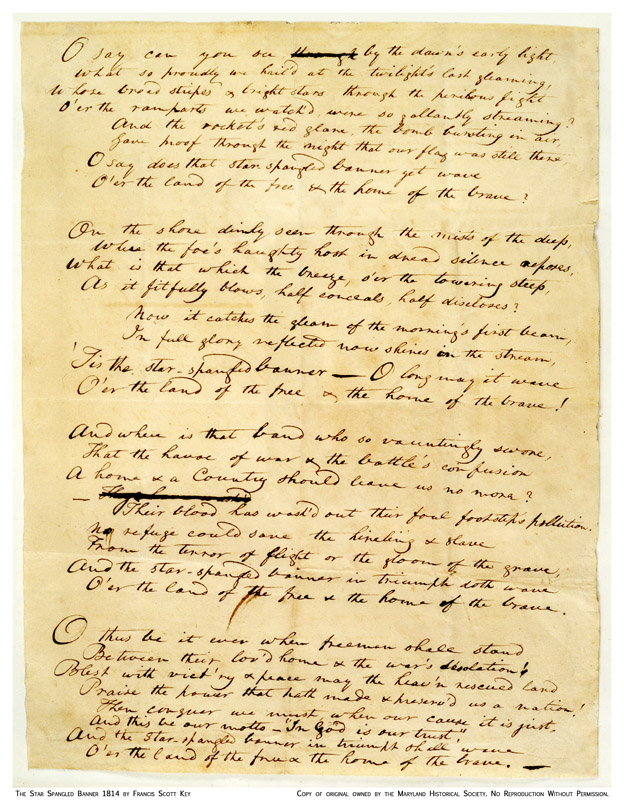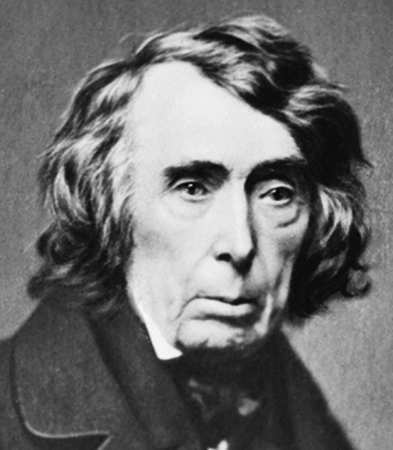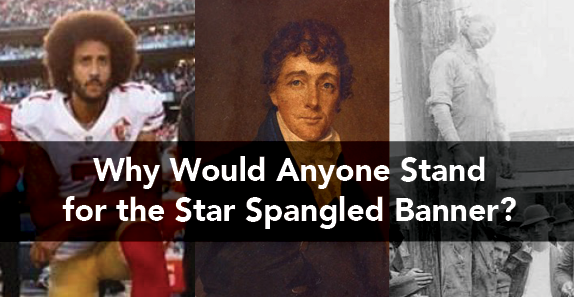Oh Say Can You See Why Blacks Won’t Stand for the Star Spangled Banner?

Francis Scott Key (1779–1843) is best known as the author of the Star Spangled Banner, the national anthem of the United States, which concludes with the lyric “O’er the land of the free, and the home of the brave.” But the Key family derived their entire sustenance from the two dozen Africans who worked without compensation on the Key plantation in Maryland. As a result of their captives’ suffering, the Keys were able to finance higher education for their own children, including law school for Francis. Francis Scott Key bought his first human being in about 1800, and by 1820 he had six; by 1840 he had eight.
Key believed that Blacks were “a distinct and inferior race of people, which all experience proves to be the greatest evil that afflicts a community.” So he joined and labored mightily for the American Colonization Society, formed in 1816 to facilitate a swift return to Africa for Blacks who had been “freed”—not for the slaves, whose free labor was so desperately needed.
As a U.S. attorney in 1833, Key caused a grand jury to indict the editor and the printer of an anti-slavery publication. In 1836, he indicted a man for having a trunk full of anti-slavery pamphlets. He called it “seditious libel” that encouraged slave rebellion. Key, in his final address to the jury, asked:
Are you willing, gentlemen, to abandon your country, to permit it to be taken from you, and occupied by the abolitionist, according to whose taste it is to associate and amalgamate with the negro? Or, gentlemen, on the other hand, are there laws in this community to defend you from the immediate abolitionist, who would open upon you the floodgates of such extensive wickedness and mischief?
Key saved his most notable anti-Black bile for the little-known third verse of his “national anthem,” which he claimed to have written whilst under attack by the British in the War of 1812:
“No refuge could save the hireling and slave
From the terror of flight, or the gloom of the grave:
And the star-spangled banner in triumph doth wave,
O’er the land of the free and the home of the brave.”

The words “the hireling and slave” allude to the fact that the British had many ex-slaves in their ranks, who under the promise of liberty eagerly fought their former American enslavers. After the U.S. and the British signed a peace treaty at the end of 1814, the government “O’er the land of the free” demanded the return of these ex-slaves—or, as they termed it, their “property”—which by that point numbered about 6,000 people. The British refused. Most of the 6,000 eventually settled in the British territory of Canada, with some going to Trinidad.
Key had yet another ominous connection to the worst of America’s racial history. He was the brother-in-law of Supreme Court Chief Justice Roger Brooke Taney, the racist ogre who ruled in the Dred Scott case that Blacks had NO RIGHTS in America. It was by Key’s advocacy that Taney was elevated to such a position.

